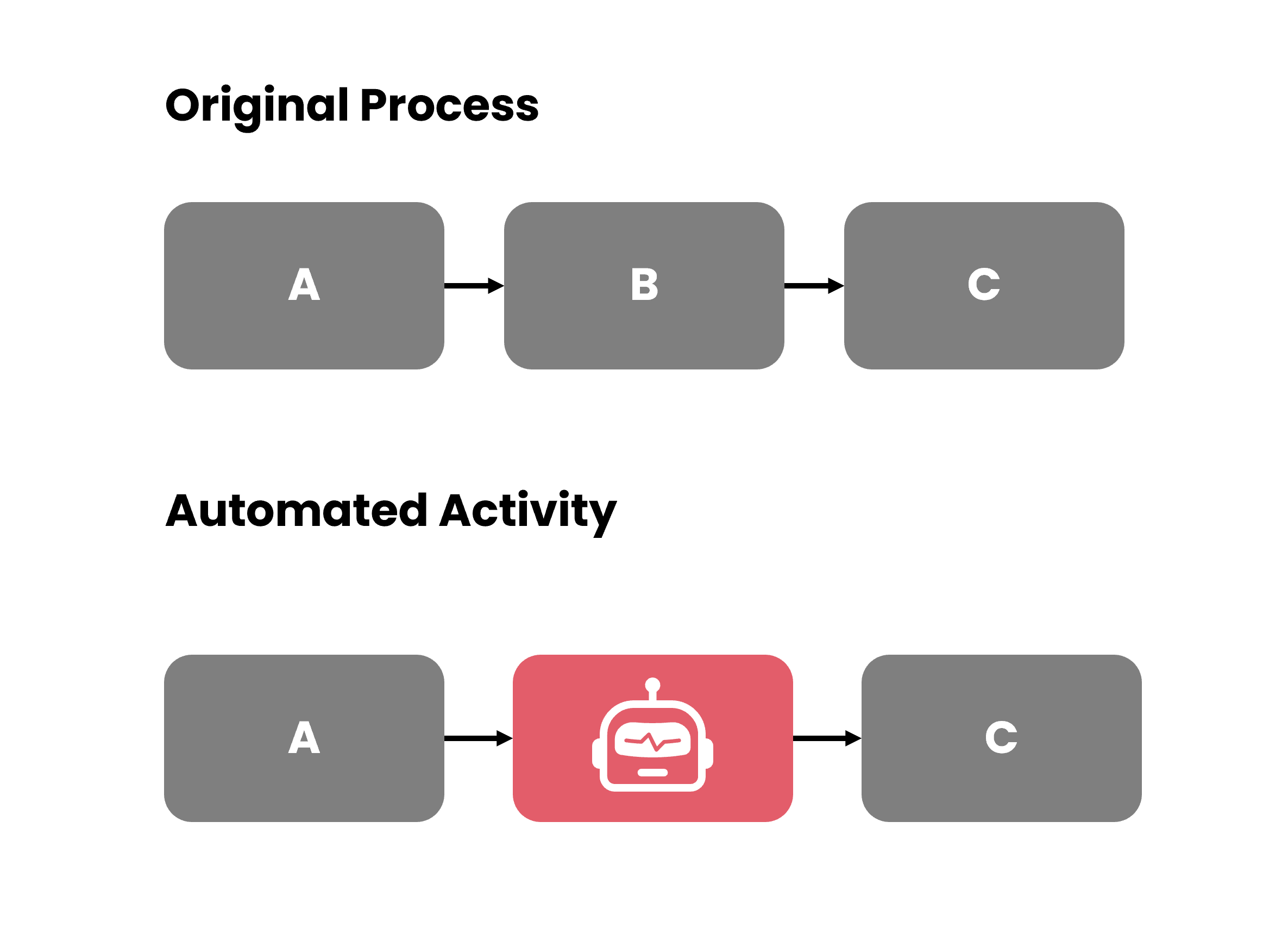Automate activities
Consider automating activities
A technique for automating routine and repetitive tasks to improve efficiency and accuracy.
Reijers, H., & Liman Mansar, S. (2005). Best practices in business process redesign: an overview and qualitative evaluation of successful redesign heuristics. Omega, 33(4)
Description
The "Activity Automation" pattern centers around using technology to automate repetitive and routine tasks within a process. By automating these activities, organizations can reduce errors, save time, and allocate resources more effectively. Activity Automation can be accomplished through various tools such as robotic process automation (RPA) or workflow management systems.
The primary objective of Activity Automation is to eliminate manual effort and reduce the reliance on human intervention for tasks that are repetitive and rule-based. By leveraging automation technology, organizations can improve accuracy, enhance efficiency, and streamline their processes. Employees are freed from mundane and routine activities, allowing them to focus on more strategic and value-added tasks that require human expertise.

Implementing Activity Automation brings significant performance implications to a process. By automating routine tasks, organizations can reduce the risk of human errors, enhancing data accuracy and quality. Time and resource savings are achieved as tasks that were previously manually performed can now be executed efficiently and effectively through automation. This leads to improved overall process efficiency, allowing for faster completion of tasks and reduced cycle times.
Furthermore, Activity Automation enables employees to shift their focus from repetitive tasks to more strategic activities. This not only improves job satisfaction but also enhances the organization's ability to innovate and deliver higher-value outcomes. By leveraging automation technology, organizations can optimize resource allocation, reduce costs, and achieve operational excellence.
Key Takeaways
Performance considerations
The positive result of automating tasks can be, in particular, that the tasks can be tasks can be carried out faster, at a lower cost and with a better result. An obvious disadvantage is that developing a system to perform a task can be costly. In general a system that performs a task is also less flexible in dealing with fluctuations than a human resource.
Share this pattern
Enjoy these
Foundational free Patterns
Establish standardized interfaces
Consider a standardized interface with customers and partners
Consider whether activities may be executed in parallel
Execute tasks when the grid is powered by renewable energy
Start implementing actions that can offset or counterbalance the environmental effects generated by business processes that cannot be changed.
Consider whether it is eco-friendly to let humans work over machines
Performance-based task assignment
Allocate tasks based on past performance: execution time and success
Allocate task based on past feedback or quality metrics
Delegate tasks according to resource cost
Distribute tasks by interdepartmental interactions to enable or restrict involvement
Share this
Connected to
Elevate physical constraints by applying new technology
Automate for environmental impact
Implement automation in a sustainable way